Science News
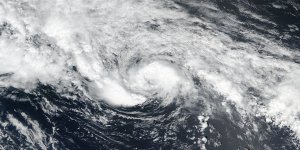
Research led by University of Iowa investigators has identified a climate system in East Asia that may influence the frequency of tropical storm development in the Atlantic Ocean. »
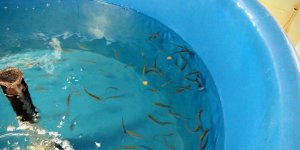
As humans continue to send large quantities of carbon into the atmosphere, much of that carbon is absorbed by the oceans. Now researchers have found (...) »

Using an alcohol mixture, researchers modified how ink droplets dry, enabling cheap industrial-scale printing of electronic devices at unprecedented scales. »

An SUV-size space rock flew past our planet over the weekend and was detected by a NASA-funded asteroid survey as it departed. »

Graphene-wrapping innovation increases effectiveness of fighting superbugs in wastewater treatment. »

Physicists have developed a "quantum microphone" so sensitive it can measure individual particles of sound, called phonons. »

Researchers use CRISPR-Cas9 genome editing to knock out pigmentation gene in squid. »
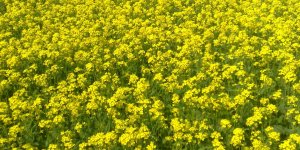
Lesquerella (a.k.a. Fendler's bladderpod and Yellow Top) is a member of the mustard family that's native to the U.S. Southwest. But Agricultural Research Service (ARS) scientists are now eyeing it as a home-grown source of butanol. »
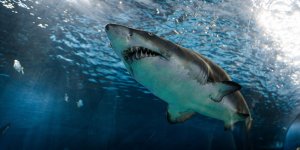
Sharks living inside of an active volcano have baffled scientists who are unsure how the marine predators survive the extreme environment. »
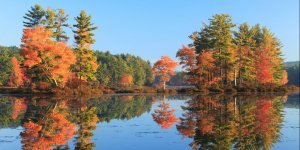
Climate change has increased the productivity of forests. »

A team of scientists has analysed which visual parameters can predict safe driving performance among older drivers. »

Ancient Japanese art form may advance products from medical devices to energy harvesters. »

Penguins travel 60 miles from breeding grounds to hunt preferred prey. »

Study applies machine learning to smell, with possible applications in flavors and fragrances. »

Some volcanoes hide magmas with potential to generate explosive activity. »

Flyways may ensure that birds have the resources they need on their journeys. »

Animals such as mussels are able to stick to their environment -- literally. »

Brittlebush is responding well to increased temperature and aridity. »

Data from NASA's recent Dawn mission answers two long-unresolved questions: Is there liquid inside Ceres, and how long ago was the dwarf planet geologically active? »

Scientists at the Florida Museum of Natural History and other institutions have discovered a new native Hawaiian land snail species, sounding a rare, hopeful note in a story rife with extinction. »

Researchers provide an unprecedented look inside the "central engine" of a large solar flare. »

T cells are the immune soldiers at the frontline of the battle with infiltrating pathogens that seek to cause disease. A new study describes a novel, label-free imaging technique that can differentiate active T cells from those off duty. »
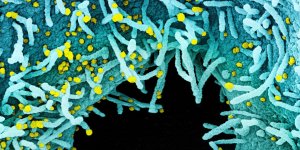
Genes that are thought to play a role in how the SARS-CoV-2 virus infects our cells have been found to be active in embryos as early as during the second week of pregnancy, say scientists at the University of Cambridge and the California Institute of Technology (Caltech). »

Life in the deep ocean extends to the base of the seafloor. »

Observations suggest the universe is 13.77 billion years old. »

Magnet's novel quantum properties extend to room temperature. »

Researchers at the National Institutes of Health and other institutions have discovered another set of pore-like holes, or channels, traversing the membrane-bound sac that encloses the deadliest malaria parasite as it infects red blood cells. »

Scientists at the Smithsonian Tropical Research Institute in Panama have published dramatic maps showing the locations of lightning strikes across the tropics. »

Seep is a location where methane gas escapes from an underground reservoir into the ocean. »

Investigation of insect surfaces led to new findings. »

Environmental pollutants can increase exposure and susceptibility to infectious diseases. »

A new class of nanosensor developed in Brazil could more accurately identify dengue and Zika infections. »

First-ever meta-analysis study revealed that higher lithium levels naturally occurring in drinking water are linked with lower levels of suicide mortality rate. »

Shapes of volcanoes and their craters provide information on their formation. »

Gene expression data suggest potential role of sex chromosomes. »

Study provides a blueprint for the use of genomics to protect reefs from warming waters. »

How do sunflowers manage to grow in the desert? »

Scientists have discovered extinct strains of smallpox in the teeth of Viking skeletons – proving for the first time that the killer disease plagued humanity for at least 1400 years. »

In early July, Comet NEOWISE approached the sun for the first time in nearly 4,500 years. »

Geoengineering -- spraying sulfur dioxide into the atmosphere to combat global warming -- would only temporarily and partially benefit apple production in northern India, according to a new study. »

Researchers from the UGR have conducted the first-ever study of (...) »

Tiny wireless, steerable camera advances vision for small robots. »

Study could lead to better understanding of risks and disinfection methods. »

The telltale sign that the black hole was feeding vanished, perhaps when a star interrupted the feast. »

Finding runs counter to hypothesis that tropical regions outpace their temperate counterparts. »

Using the same mechanism, several species of fish have adapted to harsh environments, calling into question the idea of evolutionary chance. »

Research shows that adolescents who live in areas that have high levels of artificial light at night tend to get less sleep and are more likely to have a mood disorder relative to teens who live in areas with low levels of night-time light. »

After drying out, resilient algae can start photosynthesizing again. »

Scientists have discovered a new tool to predict the location of base metal deposits buried too deep beneath the Earth’s surface to be found using current exploration methods. »

Apathy offers an important early warning sign of dementia in individuals with cerebrovascular disease, but depression does not. »